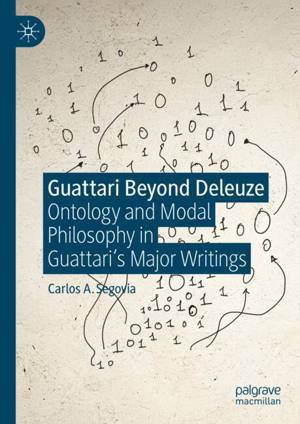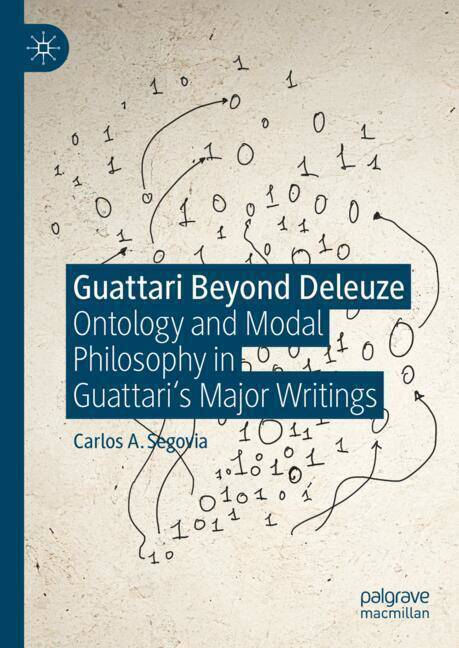
- Retrait gratuit dans votre magasin Club
- 7.000.000 titres dans notre catalogue
- Payer en toute sécurité
- Toujours un magasin près de chez vous
- Retrait gratuit dans votre magasin Club
- 7.000.000 titres dans notre catalogue
- Payer en toute sécurité
- Toujours un magasin près de chez vous
Guattari Beyond Deleuze
Ontology and Modal Philosophy in Guattari's Major Writings
Carlos A SegoviaDescription
This book argues that, by virtue of his original and ongoing contribution to ontology and modal philosophy (from the texts gathered in Psychanalysis and Transversality to the unpublished manuscript notes for What Is Philosophy?), Guattari is to be acknowledged a philosopher in his own right, independently from Deleuze. Furthermore, it looks back and forth beyond Anti-Oedipus and contends that Guattari's major writings gradually supplement deterritorialization with determinability. Accordingly, it offers a new interpretation of the nuanced development of Guattari's philosophical thought, which it proposes to define as constructivist, rather than post-structuralist. Additionally, it explores the innovative responses that Guattari's philosophy supplies to various contemporary philosophical debates like those on accelerationism, indeterminacy, compossibility, and worlding. Finally, it examines the differences that, upon a careful cross-reading of their earliest texts (including The Anti-Oedipus Papers and Difference and Repetition), must be drawn between Guattari's constructivism and Deleuze's sacrificial philosophy.
Spécifications
Parties prenantes
- Auteur(s) :
- Editeur:
Contenu
- Nombre de pages :
- 261
- Langue:
- Anglais
Caractéristiques
- EAN:
- 9783031696497
- Date de parution :
- 09-11-24
- Format:
- Livre relié
- Format numérique:
- Genaaid
- Dimensions :
- 161 mm x 216 mm
- Poids :
- 471 g







